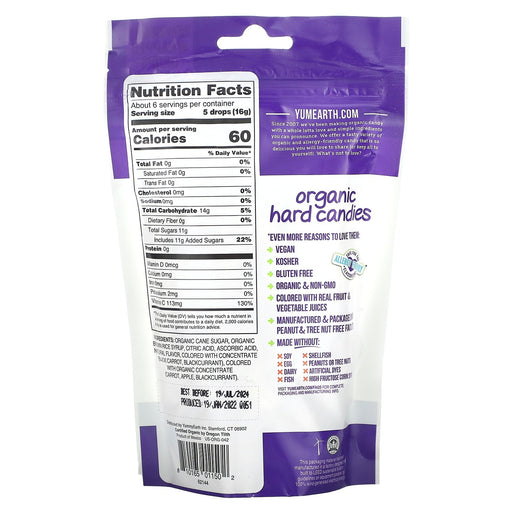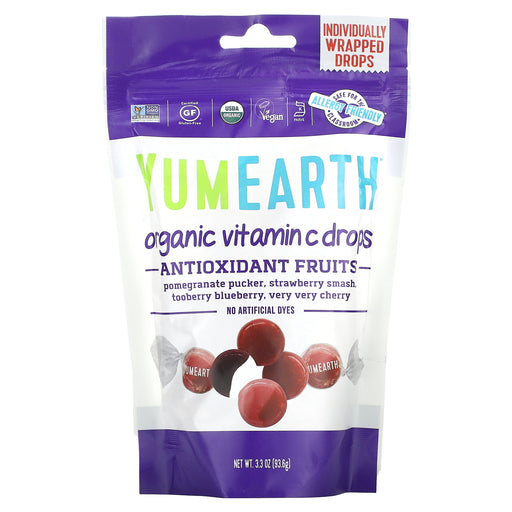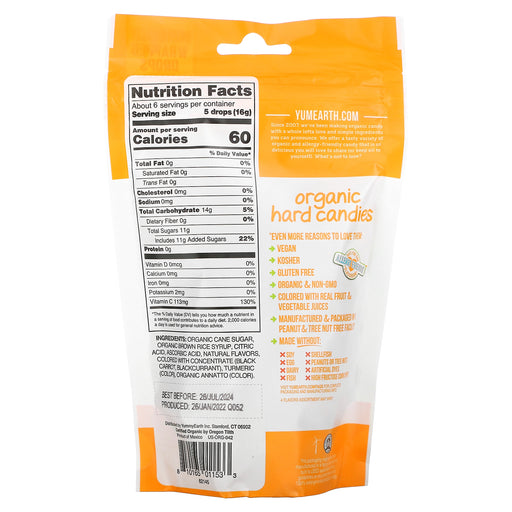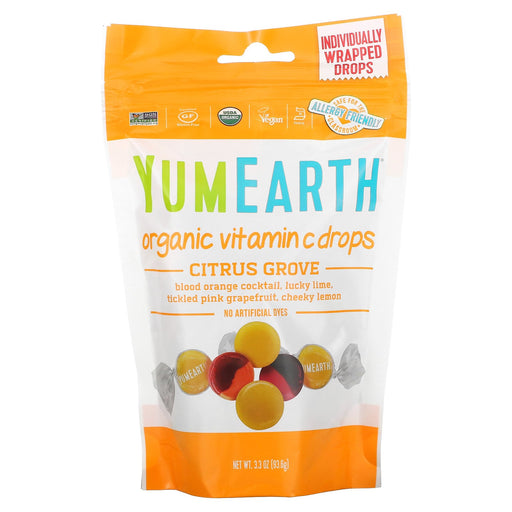
Indulge in Healthier Treats with Our Chocolate and Candy Collection
Who says you can't enjoy a sweet treat while still maintaining a healthy lifestyle? At Health Orchard, we believe that indulgence and wellness can coexist, which is why we've curated a collection of chocolate and candy products that are both delicious and better for you. From antioxidant-rich dark chocolate to sugar-free gummies, our selection offers a range of options to satisfy your sweet tooth without compromising your health goals.
The Benefits of Choosing Healthier Chocolate and Candy
When you opt for healthier chocolate and candy alternatives, you can enjoy several potential benefits, including:
- Nutrient-Rich Ingredients: Many of our chocolate and candy products are made with wholesome, nutrient-dense ingredients like dark chocolate, nuts, and fruit, providing a range of vitamins, minerals, and antioxidants.
- Reduced Sugar Content: We offer a variety of low-sugar and sugar-free options, allowing you to indulge in sweet treats without the negative health impacts associated with excessive sugar consumption.
- Mindful Indulgence: By choosing healthier chocolate and candy options, you can practice mindful eating and enjoy your favorite treats in moderation, as part of a balanced, overall healthy lifestyle.
- Allergen-Friendly Options: Our collection includes products that cater to various dietary restrictions and preferences, such as gluten-free, dairy-free, and vegan options, ensuring that everyone can find a treat that suits their needs.
- Guilt-Free Satisfaction: With healthier chocolate and candy alternatives, you can satisfy your cravings without the guilt or negative feelings often associated with consuming conventional sweets.
Choosing the Best Chocolate and Candy Products
When selecting chocolate and candy products from our collection, consider the following factors to find the best options for your preferences and health goals:
- Quality Ingredients: Look for products made with high-quality, whole food ingredients and minimal artificial additives or preservatives.
- Cacao Content: When choosing chocolate, opt for products with a higher percentage of cacao, as this indicates a greater concentration of beneficial compounds like antioxidants and minerals.
- Sugar Content: Select products with lower sugar content or natural sugar alternatives, such as stevia or erythritol, to minimize the negative health impacts of excessive sugar consumption.
- Portion Control: Choose products that come in individually wrapped servings or resealable packages to help with portion control and mindful consumption.
- Allergen Considerations: If you have specific dietary restrictions or allergies, look for products that are clearly labeled as gluten-free, dairy-free, or nut-free, depending on your needs.
Tips for Incorporating Healthier Chocolate and Candy into Your Diet
To enjoy the benefits of healthier chocolate and candy while maintaining a balanced, healthy lifestyle, consider the following tips:
- Practice Moderation: Enjoy these treats in moderation, as part of a well-rounded diet rich in whole foods, fruits, and vegetables.
- Savor the Experience: Take the time to fully appreciate and savor each bite of your chocolate or candy, engaging your senses and practicing mindful eating.
- Pair with Healthy Habits: Incorporate healthier chocolate and candy into a lifestyle that includes regular physical activity, adequate sleep, and stress management techniques for optimal well-being.
- Use as a Topping or Ingredient: Experiment with using healthier chocolate and candy as toppings for yogurt or oatmeal, or as ingredients in homemade trail mixes or baked goods for an added touch of sweetness.
Satisfy Your Sweet Tooth with Health Orchard's Chocolate and Candy Collection
Indulge in the delicious world of healthier chocolate and candy with Health Orchard's carefully curated collection. From rich, antioxidant-packed dark chocolate to sugar-free gummies, our selection offers a range of options to satisfy your cravings while supporting your overall health and well-being.
Explore our chocolate and candy products and witness the joy of guilt-free indulgence. With a commitment to quality, taste, and your individual needs, Health Orchard is here to help you find the perfect balance between sweet treats and a healthy lifestyle.
Frequently Asked Questions about Chocolate & Candy
1. Why is chocolate healthier than candy?
Chocolate, particularly dark chocolate with a high percentage of cocoa solids, is often considered healthier than candy due to its nutrient profile and potential health benefits:
- Nutrient content: Dark chocolate contains various beneficial nutrients, including fiber, iron, magnesium, copper, and antioxidants like flavonoids and polyphenols. In contrast, most candies are primarily composed of sugar and offer little to no nutritional value.
- Antioxidants: Dark chocolate is rich in antioxidants, particularly flavonoids, which may help protect cells from damage caused by free radicals. These antioxidants have been associated with potential benefits, such as improved heart health, reduced inflammation, and better cognitive function.
- Lower sugar content: Dark chocolate typically contains less sugar compared to milk chocolate and most candies. Higher cocoa content in dark chocolate means a lower proportion of sugar and other additives.
- Potential health benefits: Some studies suggest that the compounds found in dark chocolate may offer potential benefits, such as improving blood flow, lowering blood pressure, and reducing the risk of heart disease. However, more research is needed to fully understand the extent of these benefits.
- Satiety: Due to its higher fat and fiber content, dark chocolate may be more satisfying and less likely to cause rapid spikes and crashes in blood sugar compared to candy.
2. What vitamins are in chocolate?
Chocolate, particularly dark chocolate with a high percentage of cocoa solids, contains several vitamins and minerals:
- Iron: Dark chocolate is a good source of iron, which is essential for maintaining healthy blood and preventing anemia.
- Magnesium: Chocolate contains magnesium, a mineral involved in various bodily functions, including energy production, muscle and nerve function, and bone health.
- Copper: Dark chocolate is a source of copper, a trace mineral necessary for forming red blood cells, maintaining nerve cells, and supporting immune function.
- Manganese: Chocolate contains manganese, a mineral involved in bone formation, wound healing, and metabolism.
- Potassium: Dark chocolate contains some potassium, an electrolyte important for heart function, muscle contraction, and maintaining healthy blood pressure.
- Zinc: Chocolate provides small amounts of zinc, a mineral essential for immune function, wound healing, and sensory perception.
- Selenium: Dark chocolate contains trace amounts of selenium, a mineral with antioxidant properties that supports thyroid function and immune health.
- Riboflavin (Vitamin B2): Chocolate contains small amounts of riboflavin, a B-vitamin important for energy metabolism and cell growth.
- Niacin (Vitamin B3): Dark chocolate provides some niacin, a B-vitamin involved in energy metabolism, nervous system function, and digestive health.
3. Is chocolate a good source of vitamins?
While dark chocolate contains various vitamins and minerals, it is not considered a primary or ideal source of these nutrients. Dark chocolate can be a part of a balanced diet and may contribute to nutrient intake, but it should not be relied upon as a significant source of vitamins for several reasons:
- Limited amounts: Although dark chocolate contains some vitamins and minerals, the amounts are generally small compared to other nutrient-dense foods like fruits, vegetables, whole grains, and lean proteins.
- Calorie and fat content: Chocolate is relatively high in calories and fat, which means that consuming large amounts to obtain significant levels of vitamins and minerals may lead to excess calorie intake and potential weight gain.
- Added ingredients: Many commercial chocolate products contain added sugars, fats, and other ingredients that can diminish the overall nutritional value and contribute to negative health effects if consumed in excess.
- Bioavailability: The bioavailability of some nutrients in chocolate, such as iron, may be limited due to the presence of compounds like oxalates and phytates, which can inhibit absorption.
- Nutrient density: Compared to other nutrient-dense foods, such as leafy greens, berries, or nuts, dark chocolate provides a lower concentration of vitamins and minerals per calorie.
4. Are sweets and chocolates healthy and nutritious?
Sweets and chocolates, in general, are not considered particularly healthy or nutritious. These foods are often high in added sugars, unhealthy fats, and calories while providing limited essential nutrients. Consuming excessive amounts of sweets and chocolates can contribute to various health issues, such as obesity, tooth decay, and an increased risk of chronic diseases like type 2 diabetes and heart disease. However, dark chocolate with a high cocoa content (70% or more) may offer some potential health benefits due to its antioxidant and mineral content, but it should still be consumed in moderation as part of a balanced diet.
5. What are the side effects of eating too much candy & chocolate?
Consuming excessive amounts of candy and chocolate can lead to several potential side effects and health issues, including:
- Weight gain and obesity: These foods are high in calories and added sugars, which can contribute to excess calorie intake and weight gain over time.
- Tooth decay: The high sugar content in candy and chocolate can feed harmful oral bacteria, leading to tooth decay and cavities.
- Blood sugar imbalances: Consuming large amounts of sugar can cause rapid spikes and crashes in blood sugar levels, which may lead to energy fluctuations, mood swings, and cravings.
- Increased risk of chronic diseases: A diet high in added sugars and unhealthy fats can increase the risk of developing chronic health conditions like type 2 diabetes, heart disease, and certain cancers.
- Nutrient deficiencies: Filling up on candy and chocolate may lead to decreased intake of more nutritious foods, potentially resulting in nutrient deficiencies over time.












